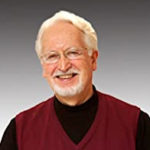Quotes about Seeker_Sensitive_Movement
Contemporary Christian literature is awash with the notion that, in order to be effective and successful, we must respond to market forces. In earlier generation, such an approach was unheard of. The tactic employed by Paul in Corinth was far closer to the model of the day. “Jesus Christ and Him crucified.” That was his message. Even though the Corinthians we demanding miracles and wisdom, Paul did not give them what they wanted. Indeed, he continued to supply the one thing they clearly did not want – preaching. He rejected the style and content that was most acceptable in his day… It is not possible to give people what they want to hear and proclaim the message of the Cross at one and the same time.
Made For His Pleasure, Moody Press, 1996, p. 178-179. Get this book!
If the aim of the church is to grow, the way to do it is to make people feel good. And when people discover that there are other ways to feel good, they leave the church they no longer need. The relevant church is sowing the seeds of its own irrelevance, and losing its identity to boot. The big question today has become how to get the baby boomers back, what techniques and methods will do the trick. Polls are taken on what baby boomers want and churches are competing to make sure they get it.
The size of the crowd rather than the depth of the heart determined success. If the crowd was large then surely God was blessing the ministry. Churches were built by demographic studies, professional strategists, marketing research, meeting “felt needs” and sermons consistent with these techniques. We were told that preaching was out, relevance was in. Doctrine didn’t matter nearly as much as innovation. If it wasn’t “cutting edge” and consumer friendly it was doomed. The mention of sin, salvation and sanctification were taboo and replaced by Starbucks, strategy and sensitivity.
A Shocking “Confession” from Willow Creek Community Church, "Bob Burney Live," WRFD Columbus, Ohio. Used by Permission.
Men may be seeking religion, a way to sooth a guilty conscience, or some way to resolve their problems and to feel good about themselves, but men do not seek God on their own. When the church’s regular worship services are redesigned as seeker services to emphasize evangelism, (contrary to God’s pattern found in Ephesians 4), the result is that the saints are hearing the gospel fifty two Sundays a year, and are not being built up in the faith. Redesigning the main church service in order to appeal to the lost is a departure from God’s plan. It may be appealing to men, it may add to the "numbers," but is it not a better idea to design the church and worship services after the pattern set by the One truly responsible for the increase (I Cor.3:6)?… The Biblical pattern is that the regular meetings of the church were primarily for the believers, not for the lost. When the gathering of the saints was over, THEN evangelism was to begin in earnest!
Worship is a holy expression before a holy God. To invite nonbelievers into such a holy process is a precarious thing, and to design worship in such a way as to accommodate their secular mindset is not only ineffective evangelism but also severely compromised worship.
The Sensitivity of True Worship, Christian Communicators Worldwide, www.CCWtoday.org. Used by Permission.
Some would suggest that Jesus was “seeker sensitive” in that He worked His miracles in order to attract large crowds to which He could share the gospel. But in several passages it is plain this is not His motive: Mark 5:43; 7:36; 8:26, 30; and Luke 4:9-12 (and these are by no means exhaustive). Clearly, Christ did not intend these miraculous works for public exploitation. There is little to indicate Christ worked miracles in order to draw a crowd. He was opposed to selling the gospel by appealing to their love for the sensational. (See Jn. 2:23-25)… He sharply rebuked the five thousand for seeking Him for merely physical satisfaction. Jesus did not teach us to draw people to Him by appealing to their senses. Instead He claimed full responsibility for drawing all to Himself by way of the cross (Jn. 12:32); therefore, exalting Christ, "and Him crucified," is to be the primary object in worship, as well as evangelism. (See Rev. 5:8.)
The Sensitivity of True Worship, Christian Communicators Worldwide, www.CCWtoday.org. Used by Permission.
For many churches, designing worship has become most closely associated with that which will best suit the attendees or best attract the hesitant church-
The Sensitivity of True Worship, Christian Communicators Worldwide, www.CCWtoday.org. Used by Permission.
If we are obsessed with making our Christian worship comfortable and non offensive to those who hate Him, we are in danger of denying Him and His call to holy living. Are we justified in taking such a risk, only that we may not offend? Surely Christians are not to seek to offend, but Christ says those who follow Him will be offensive – it is unavoidable.
The Sensitivity of True Worship, Christian Communicators Worldwide, www.CCWtoday.org. Used by Permission.
The act of purposefully designing worship to accomplish the goal of evangelism is without biblical precedent… We may worship through evangelism, but never are we instructed to evangelize through worship.
The Sensitivity of True Worship, Christian Communicators Worldwide, www.CCWtoday.org. Used by Permission.
Nobody loves the unbeliever more than Jesus. (Rom. 5:8) He is the true Seeker come to seek and save the lost. But Jesus was not "seeker sensitive" as the term is used today. There were many who came to Jesus only to be turned away because they had come for the wrong reason.
The Sensitivity of True Worship, Christian Communicators Worldwide, www.CCWtoday.org. Used by Permission.
Neither can we say the disciples were “seeker sensitive.” In Luke 10:10-16 Christ gave seventy of His most faithful followers specific instructions to symbolically “shake the dust from their feet” as a rebuke to those who do not accept the gospel. He doesn’t tell them to try a different method, revise their message, or buddy-up to the people in an effort to win them over. Instead they were to do exactly as Christ had commanded, preaching the gospel He had declared and ministering in His name, no matter what the result. And what about Paul? Hear again Galatians 1:10: “For do I now persuade men, or God? Or do I seek to please men? For if I still pleased men, I would not be a servant of Christ.” Instead of seeking to be a people-pleaser, the true disciple, and thus the true worshipper, mirrors Christ’s uncompromising zeal to please the Father.
The Sensitivity of True Worship, Christian Communicators Worldwide, www.CCWtoday.org. Used by Permission.
[Do we] want a ministry designed to amuse the dying or a ministry aimed at raising the dead?
The Story of Creation by Michael Lawrence taken from Biblical Theology by Michael Lawrence, copyright 2010, Crossway Books, a division of Good News Publishers, Wheaton Illinois 60187, www.crosswaybooks.org. Page 124
Churching the unchurched is an absolute fallacy – it is like purposing to let the tares in. It is absolutely bizarre to want to make unsaved people feel comfortable in a church. The church is not a building – the church is a group of worshiping, redeemed, and sanctified people among whom an unbeliever should feel either miserable, convicted and drawn to Christ, or else alienated and isolated. Only if the church hides its message and ceases to be what God designed the church to be, can it make an unbeliever comfortable.
What we need most are seeker-sensitive lives, not seeker-sensitive services (Mark Dever and Paul Alexander).
The Deliberate Church, © 2005, Crossway Books, a division of Good News Publishers, Wheaton Illinois 60187, p. 209, www.crosswaybooks.org.
Our drive to evangelize and our desire to grow numerically have led us to “use” worship as a tool to reach the lost. We have gone so far as to turn our worship services, as opposed to evangelistic services, into "seeker-friendly" meetings, so the world will feel at home when they come into the house of God. We should always be sensitive to the unsaved, but nowhere in Scripture are we told to accommodate the world in what God calls the believer to offer to Him.
The Worship Service: A Hindrance or a Highway for Revival, Revival Commentary, v. 2, n. 2.
Worship, as we find it in Scripture, is the exclusive right, privilege, and responsibility of the child of God. It is spiritually impossible for an unbeliever to worship. The prevailing idea that the church needs to sound like the world in order to win the world demonstrates a serious misunderstanding of what church really is. It demonstrates more concern with what the world thinks than with what God thinks.
The Worship Service: A Hindrance or a Highway for Revival, Revival Commentary, v. 2, n. 2.
Whatever means you use to get people into the church is precisely what you must use to keep them. If you get them with a ‘religious circus’, then you must keep the circus going – keep up the entertainment. If you get them with biblical preaching and teaching, then that will keep them and you will not need the entertainment.
Seeking God? We have totally revised corporate worship services to be sensitive to “seekers.” If worship were to be tailored for seekers, it would be directed exclusively to believers, for no one except believers ever seeks God (Rom. 3:9-12).
The gratuitous leap of logic comes when church leaders think that because people are searching for benefits only God can give them, they must therefore be searching after God. No, they want the benefits without the Giver of the benefits. And so structuring worship to accommodate unbelievers is misguided because these unbelievers are not seeking after God. Seeking after God begins at conversion, and if we are to structure our worship with a view to seekers, then we must structure it for believers, since only believers are seekers.
Good Intentions Gone Bad, Tabletalk, October 2007, p. 6. Used by Permission of Ligonier Ministries.
One does not structure the church to meet the felt needs and desires of the tares. The purpose of corporate assembly, which has its roots in the Old Testament, is for the people of God to come together corporately to offer their sacrifices of praise and worship to God. So the first rule of worship is that it be designed for believers to worship God in a way that pleases God.
Good Intentions Gone Bad, Tabletalk, October 2007, p. 6. Used by Permission of Ligonier Ministries.
The modern movement of worship is designed to break down barriers between man and God, to remove the veil, as it were, from the fearsome holiness of God, which might cause us to tremble. It is designed to make us feel comfortable.
If there were such a thing as a seeker, what would he be seeking? The church growth movement seems to believe he would be seeking more of the same. In a world consumed with lighthearted entertainment, we offer up less professional, less entertaining lighthearted entertainment? Why, I keep wondering, would a “seeker” get up on a Sunday morning, and travel to some giant box to hear a third rate rock band preceding a third rate comic giving a third rate “message” that leaves him in the same state that he arrived in?
Pragmatic Principle, Tabletalk, October 2007, p. 59. Used by Permission of Ligonier Ministries.
A service that might attract the lost would be one that does not hide the transcendent, but reveals it. A service that might attract the lost would be one that does not deliver more of the same, but that shows forth the One. A service that might attract the lost would be one heaven bent on giving a map, rather than celebrating being lost. A service that might attract the lost would be one that panders to those who are sick of being pandered to, by refusing to pander. A service that might attract the lost would be one that offers discomfort to those who are sick and tired of being comfortable… If anyone is seeking, he is seeking what he has not found in the world.
Pragmatic Principle, Tabletalk, October 2007, p. 59. Used by Permission of Ligonier Ministries.
Religion today is not transforming the people – it is being transformed by the people. It is not raising the moral level of society – it is descending to society’s own level and congratulating itself that it has scored a victory because society is smiling accepting its surrender.
It’s all the rage today. If your church is struggling to reach people and be relevant, do away with preaching, hymns, and anything traditional. Instead, do what successful corporations do: give people what they want. A hip environment, convenient services, lots of contemporary music or drama, and maybe a catchy campaign. Downplay doctrine or Christian lingo. If you must preach, keep it short and upbeat. That is the seeker church movement that’s rapidly transforming – and even splitting – countless congregations.










